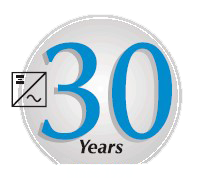Ignorance is bliss they say; however, it doesn’t apply while buying sine wave inverters! It’s better if you know as much about them so that you can buy the best inverters for your additional power needs.
With so many brands and types of inverters to select from, asking the following questions will help clear most of your doubts on it.
1. Is it worth buying cheap inverters to save money?
No, the cost should never be the deciding factor while buying sine wave inverters. Based on your power needs, you should choose the types and number of appliances it should power.
If you need it to power electrically sensitive equipment like laser printers, it’s better to buy something more expensive. The more expensive pure sine wave inverters come with additional features like overload and control features. These other features prove helpful in preventing system overload problems and potential battery damage.
2. Do I also need to buy a battery bank?
There’s no fixed answer for this because it depends on your usage. If you are thinking of buying inverters to reduce your utility bills, you don’t need a battery bank.
You can buy a cheaper grid-tie inverter, which lets you use higher voltage solar power. It also saves costs by reducing your solar array wire size and the inverter installation costs.
However, if you want it to power your appliances and lights during power outages, you will need one. You will also require a battery bank if you plan to use a pure sine wave inverter to power delicate devices like computers and audio/video equipment.
3. Is it better if I buy my inverter directly from the manufacturer?
Yes, you do. First of all, get quicker and better technical assistance in case you end up with inverter problems. You can call the inverter manufacturer, and they will send over their technicians as quickly as possible.
You also know that the manufacturer will replace any parts that need replacement with original spare parts and not something cheap and unreliable. Besides, as you will be buying directly from the manufacturer, you are assured that they know the inverter inside out. They will be able to identify quickly and rectify any potential problems.
4. Do you provide any product certifications?
Yes, most sine wave inverters come with different certifications based on their application. Some of the certifications you can expect for inverters are TUV, RoHS, TL9000, and NEBS Level 3 certifications.
The NEBS Level 3 certification is the most popular and indicates that the inverter is usable in any operating condition like in places with airborne contaminants, moisture, and heavy moisture.
5. What is your inverter manufacturing technology?
It all depends on the manufacturer. Some manufacturers, like Exeltech, use surface mount technology to pick and place a system to manufacture their inverters.
The benefit of this technology is that all the models are built using standardized parts, making it easier for you to get spare parts. Besides, it also reduces the inverter setup time and the chances of errors occurring while reloading and setting up machines.
Exeltech also uses some manual processes in its inverter manufacturing, like adding large capacitors to help minimize automation errors. Their inverters don’t have any hand soldering or Point to Point wiring because they use PCBs in the inverter. It, in turn, minimizes the possibilities of faulty wiring and loose connections to give you a longer-lasting inverter.
Asking the inverter supplier and preferably manufacturers these five questions will help you make a more informed choice while buying sine wave inverters. You know your device better so that it serves you better and makes it so much easier for you to maintain.




